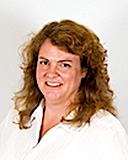“Heidelberg Can Offer International Researchers an Excellent Environment”

Prof. Dr. Petra Rohrbach, parasitologist, in Heidelberg from 1993 until 2008 as student, PhD student at the German Cancer Research Centre, and Postdoc at Heidelberg University
When, how long and in what position did you stay at Heidelberg University?
After completing a Bachelor’s degree in Science (BSc) at McGill University in Montreal, Canada, I applied to Heidelberg University since I wanted to continue my graduate studies in Germany. I finished a Diplom in Biology at Heidelberg University and went on to complete a PhD through my work at the German Cancer Research Centre, in the lab of Prof. Dr. Melvyn Little (Recombinant Antibody Technology). Since Heidelberg is a very dynamic area for research and has much to offer a researcher, I accepted a post-doctoral position in the lab of Professor Stefan Duebel (Department of Molecular Genetics) and later at the Hygiene Institute in the lab of Professor Michael Lanzer (Department of Parasitology). I obtained my habilitation and received the title of Privatdozent in 2008.
Why did you decide to come to Heidelberg University?
Since my parents grew up in Germany and I had heard a lot about the country, I thought it would be a good idea to continue my studies there. Heidelberg is a great place to study, since the university has a very good international reputation and many research institutions are situated in the area. This made studying at Heidelberg University very compelling. Furthermore, Heidelberg is well known for its romantic flair and multiculturalism. I still have a picture of the castle in my mind and am proud to have been able to do part of my studies in this city.
What were your experiences in Heidelberg?
There are many experiences that I have obtained while staying in Germany but they are too many to list. Perhaps more generally, since I studied and worked in Heidelberg for more than 15 years, I had the opportunity to interact with numerous research groups. This gave me the opportunity to lay down a solid foundation for my future goals in research. On a more personal note, I was able to integrate myself into the German lifestyle, which made me feel at home.
How did your career continue after your time in Heidelberg?
After receiving my venia legendi in January 2008, I was looking for a professorship to continue my research. I was offered my current professorial position at the Institute of Parasitology, McGill University, and returned to Canada in November 2008. I continue to work on malaria research and am teaching both at the graduate and undergraduate level.
Do you recommend a research visit to Heidelberg University to your students or to colleagues in your scientific network?
Yes, I most certainly do. Since August 2012, I have been given the position of Research Ambassador at the German Academic Exchange Service (DAAD). This gives me the opportunity to promote research exchanges between North America and Germany, and I believe that this is important. Germany, especially Heidelberg with its many ties to various research institutions and technology centres, can offer international researchers an excellent environment. McGill University has been informed of my position at the DAAD and I have been recognised as someone who has a unique position and could function as a liaison between the two countries, and perhaps more specifically, between McGill and Heidelberg.
How did you like the Research-Alumni Meeting in Boston? How can you benefit from it?
The Research-Alumni Meeting in Boston was a wonderful way to see what is going on with various Heidelberg alumni organisations throughout the world. Perhaps more importantly, it showed me how much Heidelberg University has invested in reaching out to its alumni internationally and nationally. It is remarkable to see the network that this department has been able to set up within the last few years. It is something that I was not aware of and I am certainly planning on using this in the near future.

